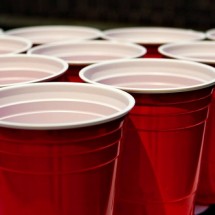Law Offices of John P. Connell, P.C.: In Massachusetts, bar owners are generally not permitted to allow drinking games in their establishments. Pursuant to 204 CMR 4.03(1)(h), “no licensee or employee or agent of a licensee shall encourage or permit, on the licensed premises, any game or contest that involves drinking or awarding of drinks as prizes.” Exactly what constitutes the type of drinking game that is prohibited by this statute however has been rather difficult to discern.
On April 2, 2013, however, the Alcoholic Beverages Control Commission (“ABCC”) provided further explanation into this question when it interpreted the law in its decision rendered in the case of 183 State Street, Inc. d/b/a Goodbar (“Goodbar”).
To read the ABCC’s full decision click here.
In Goodbar, the ABCC heard an appeal from the Boston Licensing Board’s (“Local Board”) decision to suspend Goodbar’s liquor license for three days after violations for selling alcohol to a minor and allowing “beer pong” to be played on its premises. At the appeal, the ABCC approved the Local Board’s suspension of the license, finding Goodbar in violation of 204 CMR 4.03(1)(h).
Beer pong is a game in which players throw a Ping-Pong ball across a table at other players’ cups, attempting to land the ball in the cups so the other players have to drink. The element of drinking is essential to this game; the game cannot be played unless players take their beer-filled cups away from the table. The ABCC distinguished games like beer pong, where “drinking [is] a consequence of not performing successfully in the game,” and other games such as darts, cards, or corn-hole, where players can continue to play the game separately from their drinking.
The ABCC weighed heavily the fact that licensees were organizing the drinking game for their patrons. Rather than a customer-organized game of trivia for example, Goodbar had set up pitchers and tables and encouraged customers to play a game wherein the object is drinking. This encouragement is what caused Goodbar’s violation. The ABCC noted that a licensee could avoid violations for games like beer pong if it took “reasonable steps not to permit” drinking as a consequence of losing the game and did not “encourage” such an activity.
The ABCC’s decision provided the most dispositive interpretation of 204 CMR 4.13 to date. The decision should help licensees administer games on their premises and provide entertainment to customers without running into issues with their local licensing authorities.
CONTRIBUTED BY COURTNEY MCGEE
© Law Offices of John P. Connell, P.C., 2013.

